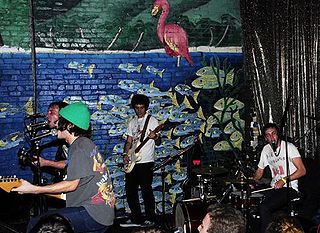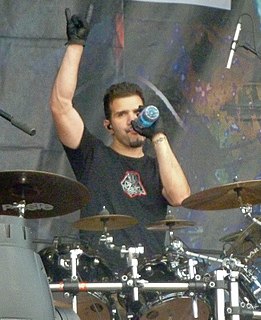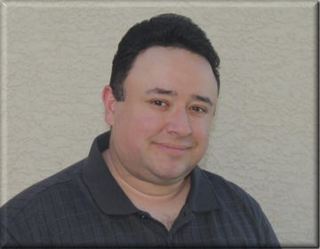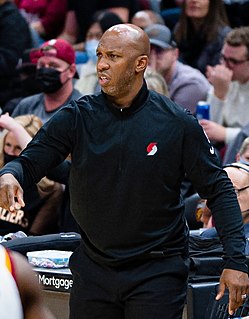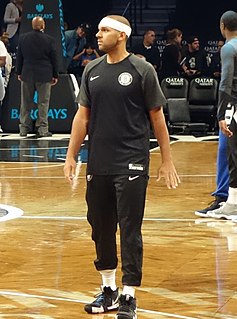A Quote by Jared Swilley
We've always done things the way we wanted to. It's true that our experience affects some of our decision making, but that's a part of growing up and evolving as a band and as people. The first five or six years were really rough. We had no money. We were lost and crazy and made mistakes, but we learned a lot and suffered through tough times, and I think what we did reflected where we were and who we are.
Quote Topics
Related Quotes
In the long-run I think we lost some of our audience because of noise. I don't think people were ready for it, OK? And after we did it nothing really happened, but then 4-5 years later when there was a rap-rock emergence, we were already over it. We could have made Bring the Noise part 2, Bring the Noise part 3 - but like I said we're a METAL band, we didn't want to do that.
I've learned a lot this year.. I learned that things don't always turn our the way you planned, or the way you think they should. And I've learned that there are things that go wrong that don't always get fixed or get put back together the way they were before. I've learned that some broken things stay broken, and I've learned that you can get through bad times and keep looking for better ones, as long as you have people who love you.
I have a very close friend who is a brilliant clown, and I always wanted to do a show with him. So I did one year at La MaMa Theatre. I had not done stilts before that show, and I had about two weeks to learn how to do that, and they were just made with off-off Broadway money. The ones that I had in Rogue One were made by [Industrial Light & Magic]. So they were really easy. They were made with actual prosthetic feet on the bottom. They were athletic, in a way. I could run in them. There was a bounce to them that I could use.
I didn't really have an interest in politics when I first entered the workforce. What I wanted to do was help people who grew up like me. When I was a kid growing up in Tucson, my father lost his job and we lost everything - including our home. We lived in an abandoned gas station for two years until we were able to get back on our feet.
My plea is that as we continue our search for truth, particularly we of the Church, that we look for strength and goodness rather than weakness and failings in those who did so great a work in their time. We recognize that our forefathers were human. They doubtless made mistakes. Some of them acknowledged making mistakes. But the mistakes were minor when compared with the marvelous work which they accomplished.
What passes for identity in America is a series of myths about one's heroic ancestors. It's astounding to me, for example, that so many people really appear to believe that the country was founded by a band of heroes who wanted to be free. That happens not to be true. What happened was that some people left Europe because they couldn't stay there any longer and had to go somewhere else to make it. That's all. They were hungry, they were poor, they were convicts. Those who were making it in England, for example, did not get on the Mayflower. That's how the country was settled.
Chris Jericho and I were really excited about teaming together, but we didn't get to sink our teeth into what we could have done as a team. We really wanted to throw it back to the glory days of Pat Patterson and Ray Stevens. We were committed, we were coming up with team moves, and all of the things were made to work.
I went through a really good-looking phase from birth to 9. And then things went crazy. I don't know what happened, but between 9 and 14 it was really, really rough. I didn't have a lot of friends. The only ones who were nice to me were the theater kids. And they were like, 'You can come and join us. No one likes us.'
I went through a really good-looking phase from birth to 9. And then things went crazy. I don't know what happened, but between 9 and 14 it was really, really rough. I didn't have a lot of friends. The only ones who were nice to me were the theater kids. And they were like, 'You can come and join us. No one likes us.
